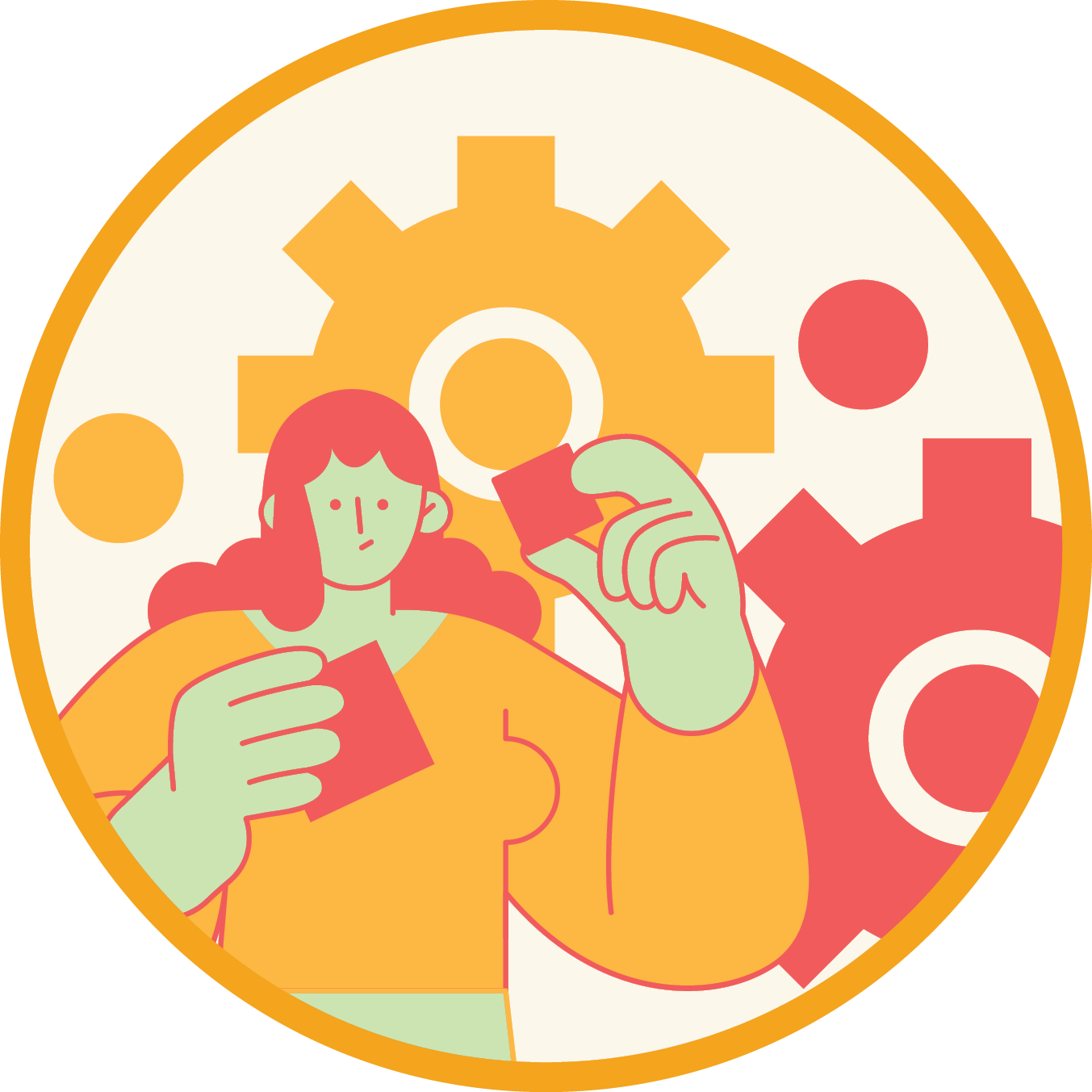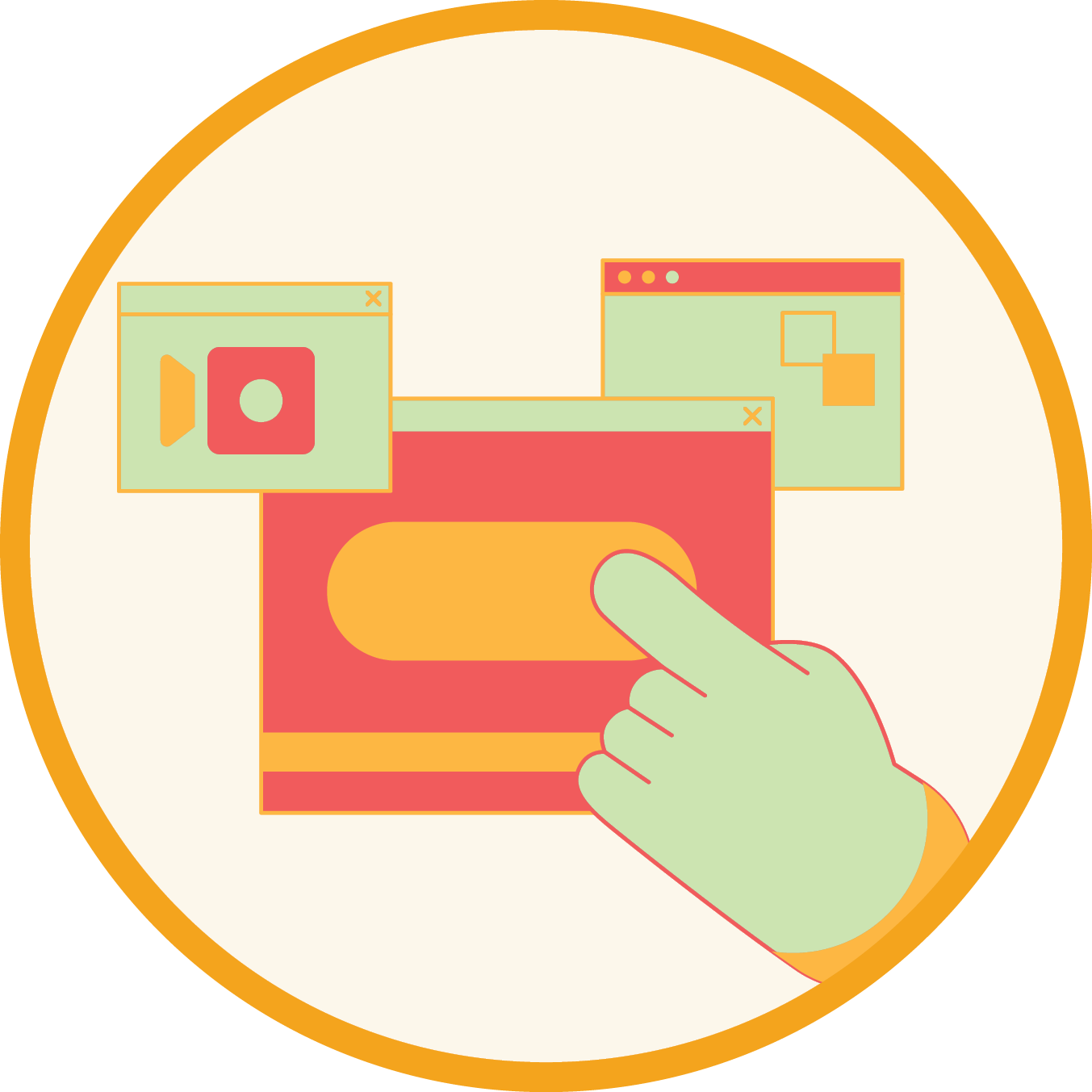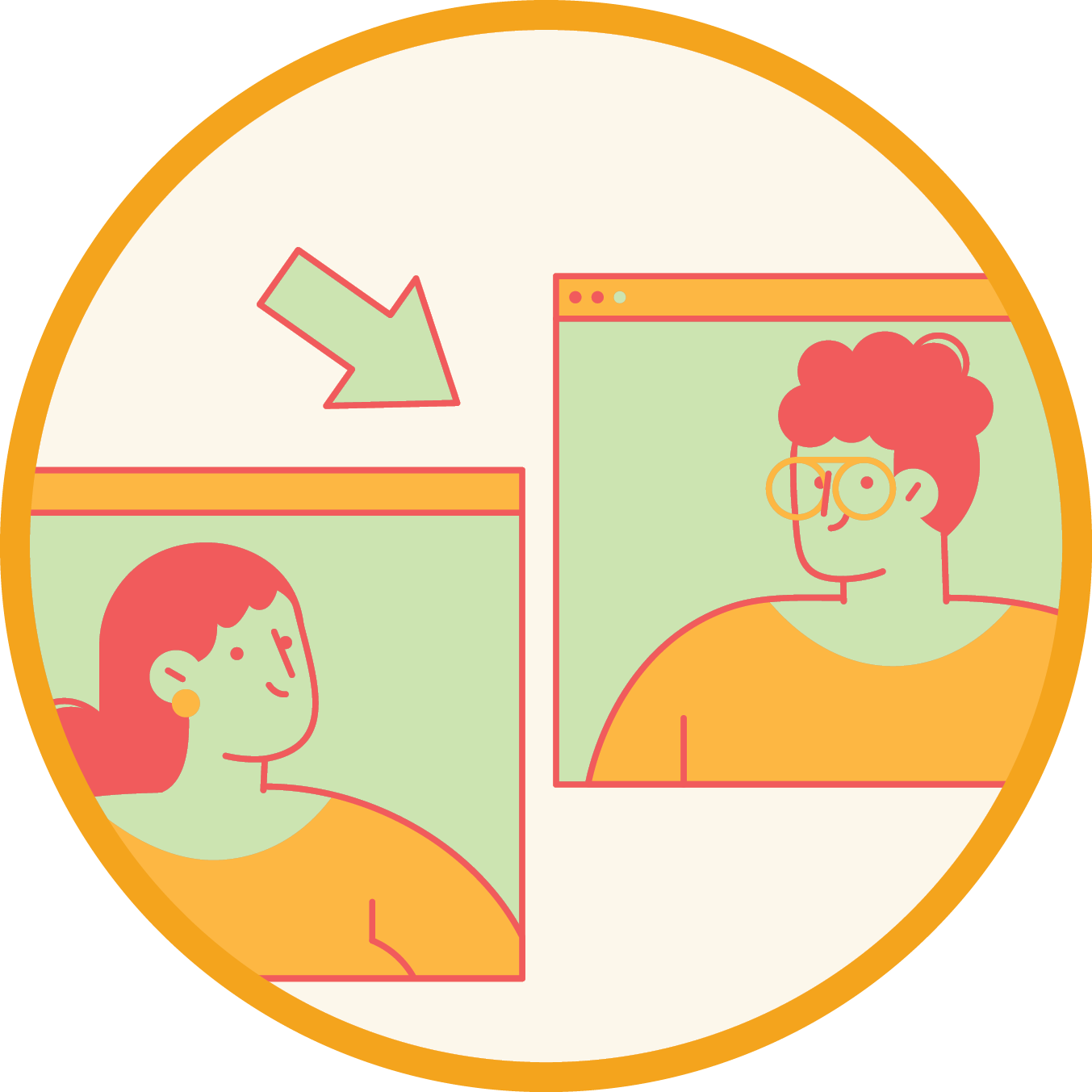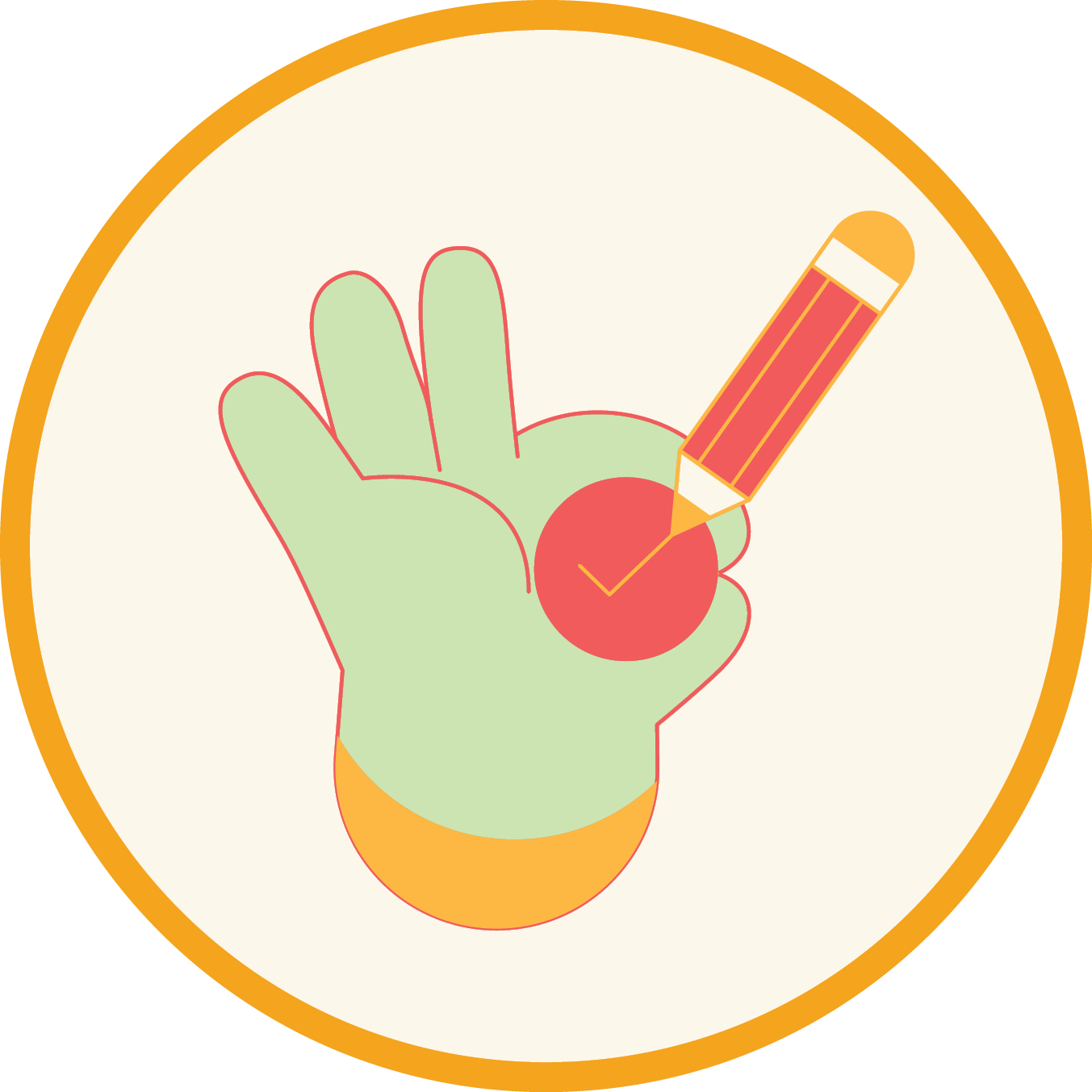

课程项目
学生将在 KTBlocks 系统上构建、测试和发布自己的游戏项目

编码平台
KTCoder 一体化编码平台支持我们的互动在线课程、专业化课程体系,以及学生对学习的热情。

学生答疑辅导时间
答疑辅导时间由我们高素质的助教团队主导。这是帮你的代码获取即时反馈的免费便捷途径。

进度报告
KTBYTE 将通过电子邮件的方式向家长发送学生的课堂表现和成绩报告

结业证书
学生完成每门课程后均可申请结业证书。
課程描述:
ACSL 是自 1978 年以来历史悠久的美国计算机科学联赛。自 2020 年起,该竞赛向全球的学生以线上参加的形式开放, 可以通过KTBYTE报名参赛。 参加该俱乐部的学生将会复习学习材料,老师对历年竞赛真题进行指导讲解,并且学生将作为 KTBYTE 团队参与竞赛。
俱乐部由获奖的优秀KTBYTE助教群带领
入班要求
中高级组:15-18岁, 10-12年级
Class Description:
ACSL 是自 1978 年以来历史悠久的美国计算机科学联赛。自 2020 年起,该竞赛向全球的学生以线上参加的形式开放, 可以通过KTBYTE报名参赛。 参加该俱乐部的学生将会复习学习材料,老师对历年竞赛真题进行指导讲解,并且学生将作为 KTBYTE 团队参与竞赛。
俱乐部由获奖的优秀KTBYTE助教群带领
Prerequisites:
中高级组:15-18岁, 10-12年级
Related Clubs
Syllabus:
Computer Number Systems
This class focused on computer number systems.
Recursive Functions
This class focused on recursive functions.
Contest 1 - What Does This Program Do?
Today we learned about analyzing and solving problems involving pseudo code!
Review for Contest 1
Today, we reviewed for the shorts portion of Contest 1 by completing miscellaneous problems that have shown up on past contests.
Contest 1 Programming
Today we practiced solving programming problems from past years' first contests.
Contest 1 Programming
Today we continued practicing solving programming problems from past years' first contests.
Contest 2 - Prefix, Infix, Postfix Notation
Today we learned how to solve problems involving prefix, infix, and postfix notation. This type of question appears in problems 1-2 of contest 2.
Contest 2 - Bit-String Flicking
Today we learned about Bit-String Flicking, a concept that involves some boolean algebra along with other logical operators with 0s and 1s. The notation takes some getting used to, but once you understand it, you'll be able to solve some very interesting ACSL problems!
Contest 2 - LISP
Today we learned about LISP, one of the first functional languages invented in 1958. It is infamous for having lots of parentheses, so much so that we often joke that LISP stands for “Lots of Irritating Silly Parentheses.”
Contest 2 - More LISP
Today we learned about LISP, one of the first functional languages invented in 1958. It is infamous for having lots of parentheses, so much so that we often joke that LISP stands for “Lots of Irritating Silly Parentheses.”
Contest 2 Programming
Today we practiced solving programming problems from past years' second contests.
Review for Contest 2 (Session 1)
Today, we reviewed for the shorts portion of Contest 2 by completing miscellaneous problems that have shown up on past contests.
Review for Contest 2 (Session 2)
Today, we continued reviewing for the shorts portion of Contest 2 by completing miscellaneous problems that have shown up on past contests.
Contest 3 - Boolean Algebra
We learned about solving problems involving the first Contest 3 topic, Boolean algebra.
Contest 3 - Data Structures
We learned about solving problems involving the second Contest 3 topic, Data structures. These include queues, stacks, and binary search trees.
Contest 3 - FSAs and Regular Expressions
Today, we talked about Regular Expressions, which are a way we can represent patterns of Strings. Finite State Automatons (FSAs) model these as a sequence of states and transitions.
Contest 3 Programming
Today we practiced solving programming problems from past years' third contests.
Review for Contest 3 (Session 1)
Today, we reviewed for the shorts portion of Contest 3 by completing miscellaneous problems that have shown up on past contests.
Review for Contest 3 (Session 2)
Today, we continued reviewing for the shorts portion of Contest 3 by completing miscellaneous problems that have shown up on past contests.
Contest 4 - Graph Theory
We explored Graph Theory, which involves a mathematical concept called matrix multiplication.
Contest 4 - Digital Electronics
Today, we learned about solving problems involving the second Contest 4 topic, Digital Electronics. This topic is an extension of Boolean Algebra. In fact, it’s simply a visual representation of Boolean algebra expressions using circuits, so bring all your Contest 3 Boolean algebra knowledge to the lesson!
Contest 4 - Assembly
Today we learned about analyzing and solving problems involving ACSL's Assembly programming language.
Review for Contest 4
Today, we reviewed for the shorts portion of Contest 4 by completing miscellaneous problems that have shown up on past contests.
ACSL Senior/Intermediate Finals Review Session 1
Today, we reviewed for the shorts portion of ACSL Senior and Intermediate Finals by completing miscellaneous problems that have shown up on past contests. We also discussed some trickier application of previous concepts already taught.
ACSL Senior/Intermediate Finals Review Session 2
Today, we reviewed for the shorts portion of ACSL Senior and Intermediate Finals by completing miscellaneous problems that have shown up on past contests. We also discussed some trickier application of previous concepts already taught.
ACSL Senior/Intermediate Finals Review Session 3
Today, we reviewed for the shorts portion of ACSL Senior and Intermediate Finals by completing miscellaneous problems that have shown up on past contests.
ACSL Senior/Intermediate Finals Review Session 4
Today, we reviewed for the shorts portion of ACSL Senior/Intermediate Finals by completing miscellaneous problems that have shown up on past contests. We also practiced solving programming problems from past years' all-star contests.
课程大纲
Computer Number Systems
This class focused on computer number systems.
Recursive Functions
This class focused on recursive functions.
Contest 1 - What Does This Program Do?
Today we learned about analyzing and solving problems involving pseudo code!
Review for Contest 1
Today, we reviewed for the shorts portion of Contest 1 by completing miscellaneous problems that have shown up on past contests.
Contest 1 Programming
Today we practiced solving programming problems from past years' first contests.
Contest 1 Programming
Today we continued practicing solving programming problems from past years' first contests.
Contest 2 - Prefix, Infix, Postfix Notation
Today we learned how to solve problems involving prefix, infix, and postfix notation. This type of question appears in problems 1-2 of contest 2.
Contest 2 - Bit-String Flicking
Today we learned about Bit-String Flicking, a concept that involves some boolean algebra along with other logical operators with 0s and 1s. The notation takes some getting used to, but once you understand it, you'll be able to solve some very interesting ACSL problems!
Contest 2 - LISP
Today we learned about LISP, one of the first functional languages invented in 1958. It is infamous for having lots of parentheses, so much so that we often joke that LISP stands for “Lots of Irritating Silly Parentheses.”
Contest 2 - More LISP
Today we learned about LISP, one of the first functional languages invented in 1958. It is infamous for having lots of parentheses, so much so that we often joke that LISP stands for “Lots of Irritating Silly Parentheses.”
Contest 2 Programming
Today we practiced solving programming problems from past years' second contests.
Review for Contest 2 (Session 1)
Today, we reviewed for the shorts portion of Contest 2 by completing miscellaneous problems that have shown up on past contests.
Review for Contest 2 (Session 2)
Today, we continued reviewing for the shorts portion of Contest 2 by completing miscellaneous problems that have shown up on past contests.
Contest 3 - Boolean Algebra
We learned about solving problems involving the first Contest 3 topic, Boolean algebra.
Contest 3 - Data Structures
We learned about solving problems involving the second Contest 3 topic, Data structures. These include queues, stacks, and binary search trees.
Contest 3 - FSAs and Regular Expressions
Today, we talked about Regular Expressions, which are a way we can represent patterns of Strings. Finite State Automatons (FSAs) model these as a sequence of states and transitions.
Contest 3 Programming
Today we practiced solving programming problems from past years' third contests.
Review for Contest 3 (Session 1)
Today, we reviewed for the shorts portion of Contest 3 by completing miscellaneous problems that have shown up on past contests.
Review for Contest 3 (Session 2)
Today, we continued reviewing for the shorts portion of Contest 3 by completing miscellaneous problems that have shown up on past contests.
Contest 4 - Graph Theory
We explored Graph Theory, which involves a mathematical concept called matrix multiplication.
Contest 4 - Digital Electronics
Today, we learned about solving problems involving the second Contest 4 topic, Digital Electronics. This topic is an extension of Boolean Algebra. In fact, it’s simply a visual representation of Boolean algebra expressions using circuits, so bring all your Contest 3 Boolean algebra knowledge to the lesson!
Contest 4 - Assembly
Today we learned about analyzing and solving problems involving ACSL's Assembly programming language.
Review for Contest 4
Today, we reviewed for the shorts portion of Contest 4 by completing miscellaneous problems that have shown up on past contests.
ACSL Senior/Intermediate Finals Review Session 1
Today, we reviewed for the shorts portion of ACSL Senior and Intermediate Finals by completing miscellaneous problems that have shown up on past contests. We also discussed some trickier application of previous concepts already taught.
ACSL Senior/Intermediate Finals Review Session 2
Today, we reviewed for the shorts portion of ACSL Senior and Intermediate Finals by completing miscellaneous problems that have shown up on past contests. We also discussed some trickier application of previous concepts already taught.
ACSL Senior/Intermediate Finals Review Session 3
Today, we reviewed for the shorts portion of ACSL Senior and Intermediate Finals by completing miscellaneous problems that have shown up on past contests.
ACSL Senior/Intermediate Finals Review Session 4
Today, we reviewed for the shorts portion of ACSL Senior/Intermediate Finals by completing miscellaneous problems that have shown up on past contests. We also practiced solving programming problems from past years' all-star contests.